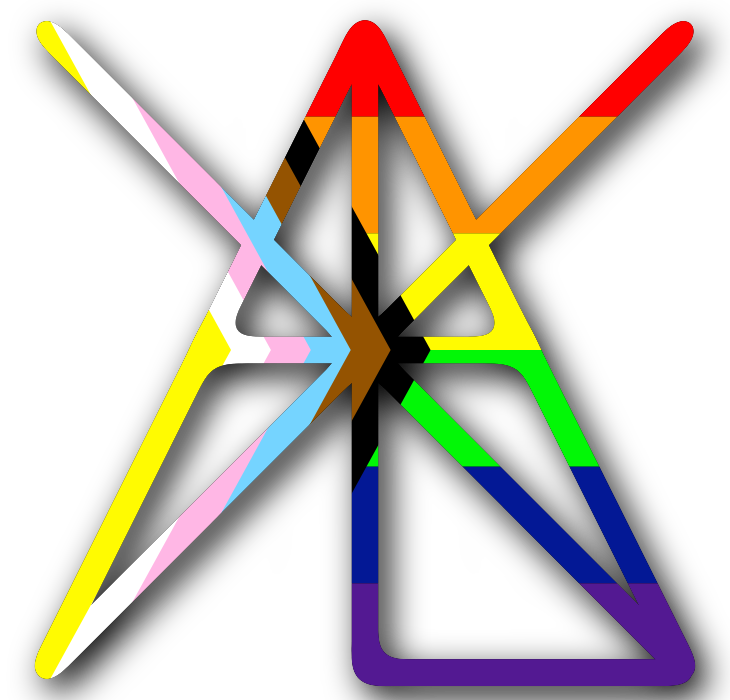“Blow High” is what I was told, though that had nothing to do with the sharks name ;)
“Blow high” gets really close to the Swedish pronunciation. Or at least the closest that you can get in English.
(English hates long monophthongs so you can’t get the same vowel as that [o:] represented by ⟨å⟩ in Swedish. “Blow” has [əʊ̯] or [oʊ̯] depending on the dialect.)
Thanks for the info and linking the pronunciation!
This isn’t Tiktok I don’t have to know how to say it right.
This is Lemmy, it’s text-based, and technically the domain is “blahaj” because “å” isn’t a valid character in URLs.
Finally, grammar and spelling policing sucks.
Wrong actually, Unicode URLs have been a thing for quite some time now, including domain names.
Internationalized domain names are stored in the Domain Name System (DNS) as ASCII strings using Punycode transcription.
It’s a workaround, not actual support.
Disagree, I think it’s actual support.
Who cares about the technical implementation, it works doesn’t it? It is fully supported by all modern systems, you type in the Unicode URLs and you see the correct page. Just because it gets converted to some other encoding along the way doesn’t mean it’s somehow no longer valid. Lots of things get transcoded along the way, nobody cares about that.
deleted by creator
Well, the instance is still blahaj regardless of what Unicode URLs can do. So it’s correct to skip the å because it’s not on the actual current url.
Ah, but I named my Blåhaj blahaj because I like to mispronounce it
å is more like “aww”, as in “aww, look at the cute shork”
Yeah, but if you had to describe it with a single letter I’d pick O.
Thank you for this it helped clarify it for me I had saw the parent post and thought it was similar to bloha in terms of pronunciation, where are the o says it’s name instead since it was capitalized
Well, now you tell me!

I mean it’s being pronounced by Swedes so it should be. it’d be written blåhai in Norwegian but pronounced the same.
Also, if you want to get the correct Danish pronunciation, try pronouncing it the Swedish way while blackout drunk with someone’s ball sack in your mouth.
I named mine Blahaj just so I negate any pronunciation issues. Like Data from star trek
blåhaj.com is a thing, why not blåhaj.zone? It’s possible.
In DNS, the domain name has to be ASCII, so unicode characters in the domain name are converted to Punycode and prefixed with
xn--. So really, blåhaj.com is reallyxn--blhaj-nra.com(put that in your browser and watch the name change).I would imagine that most things would just work, but there would probably be some annoying bugs with different clients who aren’t using libraries which support internationalized domain names, or aren’t expecting them. It’d probably be a good thing to have an internationalized domain name for a popular instance, as that would be a good test case for servers and clients to support that standard.
I’m personally convinced limitations like this are why English is becoming such a dominant language, because the internet and most coding was all designed in English for English, without consideration for other languages. Other languages have to get tacked on with semi-complicated workarounds like this.
Cultural imperialism.
Adapting keyboards to non-alphabetic languages for example. Forced Chinese to adopt a romanized way to type things out and learn a new alphabet.
Although they actually eventually became some of the fastest typists on earth thanks to the predictive auto-complete (as I understand it) they adopted decades prior to the rest of the world using it on phones.
It was actually more that early computers had such limitations on compute and memory that they had to limit what they could work with. The internet is still built from the ground-up on tech from 40-50 years ago.
It can appear and act as cultural imperialism, but there’s actually a lot of evidence that it was just people making a new thing and not thinking that far forward with what they were doing.
Usually cultural imperialism is considered something a society does on purpose to force other societies into their mold. There is plenty of evidence this one is honestly purely accidental and not purposeful.
I mean, I don’t blame the creators. They didn’t know how these things could affect others nor know their standards would last so long.
But the US and other Western powers became the tech powerhouses they did through imperialism and exploitation, so really these things can be viewed as an extension of that imperialism.
Intentional? Perhaps not. But it’s still reality that it makes things harder for much of the world, and it’s something that should be pushed back against.
But it’s still reality that it makes things harder for much of the world, and it’s something that should be pushed back against.
Abso-lutely.
Never attribute to malice that which is adequately explained by stupidity.
All of this stuff is 50 years old and there’s no way the people who put these systems in place could have ever predicted the Internet as it is today. Famously in 1973, there was a “map of the ARPA network”, that’s how few machines were “online” at the time.

It’s really only in the past 10 years or so that security via TLS has been widely adopted by websites, and it’s been over 20 years since IPv6 was announced and still is not entirely supported everywhere. There is so much inertia with the underlying infrastructure of the internet, even if there is a serious issue (like DNS cache poisoning ), systems will not be reworked and replaced, but hacks will be added to fix the issue of the day.
Agreed, I just said the same elsewhere. Early computing was filled with memory and compute limitations that meant having every language under the sun supported was just not physically possible.
Because there are many users do not know how to type å on a keyboard. Which will make it much harder for them to visit lemmy.blahaj.zone from a browser for no good reason.
I will pronounce it how i please. Bloyhagg 😤
Personally I prefer to pronounce it “bog hag”.
Blow haj
Who is haj?
It’s a greeting, pronounced hai.
The greeting is hej. Haj is the Swedish for shark. Blue shark = blåhaj.
I was making a joke that the pronouncitation of haj, “hai”, is a greeting in English.
Me
Nah, it’s blah-hog. And nobody can convince me otherwise.
But like the o in lot, or roll, or corn, or tailor, or women…?
deleted by creator
Well I think you’re a blåhard and a pedant!
(Not really, I just wanted to write blåhard, love you ❤️)
Edit: spelling =)
A pendant?! How dare you!
Curse my autocorrect! I could swear I typed no ‘n’ XD
Well being a pendant would be pretty boring. Just hanging on some necklace for all eternity.
Babaj :3
So is it [bloːhaj]? I was trying to say [bloːhɑj] but [ɑ] feels perhaps odd next to the glide?
Completely an inference from https://en.m.wikipedia.org/wiki/Help:IPA/Swedish so I may have fucked up the phonotactics
According to the Wikipedia page the phonetics would be [ˈblôːhaj]
Or as one of my twins says it “Hello hi”
You sent me down one hell of a rabbit hole 😭 At first I was confused by the tone marker, but it turns out Swedish is a pitch accent language. So that clears things up xd
But before I even got to that, the section on vowels caught my eye. Apparently, /oː/ can be realized as [ɤʷː], [oə] (Central Standard), or [ɔə] (Gotland?). So apparently [blɤ̂ʷːhaj], [bloəhaj], and [blɔəhaj] are all valid realizations of /blôːhaj/ (varying in dialect)? Thankfully BLÅHAJ has no rhotics or i wouldve started getting into the literature















